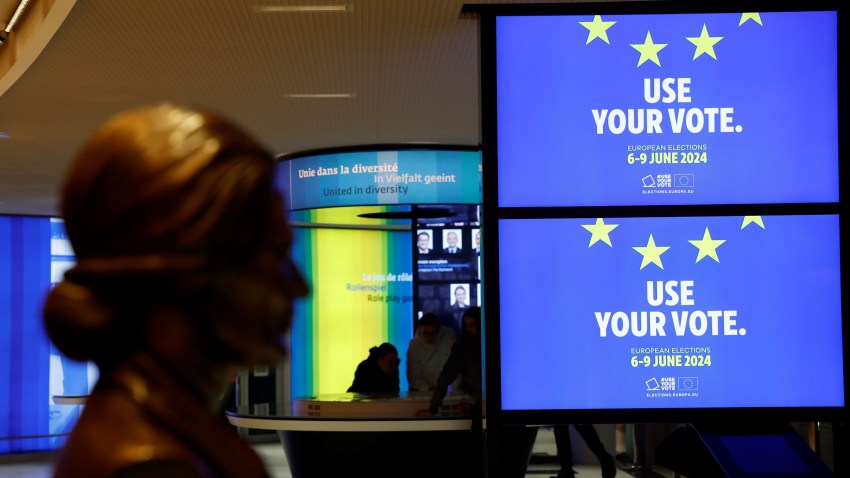One of the biggest elections in what has been called the “ultimate election year” is the one scheduled for June, when more than 400 million people in 27 countries will be eligible to vote for a new European Parliament. It’s one of the world’s largest democratic elections, second only to India’s.
Europe-wide elections, however, suffer from a number of unique obstacles. Despite occurring in a region with some of the strongest democratic traditions and safeguards, the contest for the European Union’s legislative branch is hobbled by the byzantine nature of the bloc’s governance. When voters go to the polls in national or local elections, they generally have a fairly solid understanding of the role for which they are choosing a candidate. By contrast, the EU, with its complex structure of governing institutions and their work-in-progress mandate, makes for a nebulous project in the minds of many voters.
It’s safe to say that many European voters are unclear about the difference between the European Commission and the European Council, and few have a firm grasp of the political groupings in the EU parliament, which act in ways similar to political parties and blocs in national parliaments. How many know the difference between Renew Europe and the European People’s Party Group? How many can even name the main groupings that shape the dynamics of the EU parliament, much less the difference in their philosophies and priorities?

